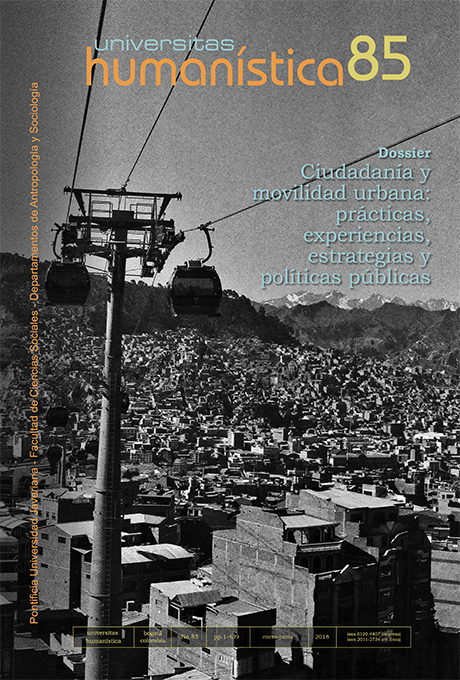Abstract
The article analyzes the daily mobility practices of the inhabitants of three unequal residential spaces in the city of La Plata: a traditional neighborhood of middle and upper classes in the center of the city; closed upper class neighborhoods located on the Buenos Aires-La Plata axis; and an informal settlement located in the southern periphery of the city. Then, mobility is the “methodological place” to explore the city and its meanings. The article seeks to problematize the ways of understanding the processes of social and spatial fragmentation by means of the
identification of “conflicting centralities” where unequal social actors converge and interact, as well as “segregated circuits” in the specific ways of connecting residence, neighborhood, work, education, and leisure. In this regard, we argue that fragmentation refers not only to separation and distance between social groups but also to the ways in which interactions are established and encounters between them are processed.

This journal provides immediate open access to its content on the principle that making research freely available to the public, encourages greater global exchange of knowledge.
The journal Universitas Humanística is registered under a Creative Commons Attribution 4.0 International Public License. Thus, this work may be reproduced, distributed, and publicly shared in digital format, as long as the names of the authors and Pontificia Universidad Javeriana are acknowledged. Others are allowed to quote, adapt, transform, auto-archive, republish, and create based on this material, for any purpose (even commercial ones), provided the authorship is duly acknowledged, a link to the original work is provided, and it is specified if changes have been made. Pontificia Universidad Javeriana does not hold the rights of published works and the authors are solely responsible for the contents of their works; they keep the moral, intellectual, privacy, and publicity rights.
Approving the intervention of the work (review, copy-editing, translation, layout) and the following outreach, are granted through an use license and not through an assignment of rights. This means the journal and Pontificia Universidad Javeriana cannot be held responsible for any ethical malpractice by the authors. As a consequence of the protection granted by the use license, the journal is not required to publish recantations or modify information already published, unless the errata stems from the editorial management process. Publishing contents in this journal does not generate royalties for contributors.


